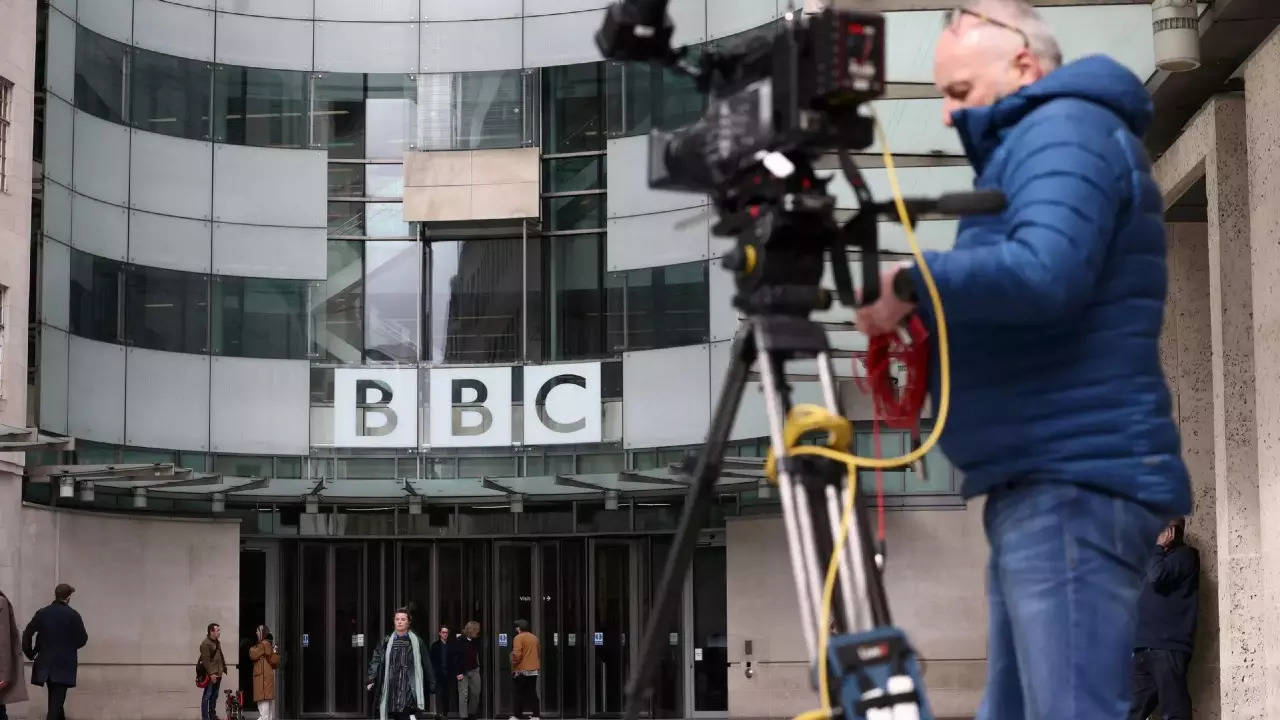
[ad_1]
LONDON: Senior British politicians on Sunday called on the BBC to rapidly investigate claims that a leading presenter paid a teenager for explicit photos.
The publicly funded national broadcaster is under pressure after The Sun newspaper reported allegations that the male presenter gave a youth 35,000 pounds ($45,000) starting in 2020 when the young person was 17.
Neither the star nor the youth was identified. Amid speculation on social media about the identity of the presenter, several of the BBC’s best-known stars spoke up to say it wasn’t them.
Though the age of sexual consent in Britain is 16, it’s a crime to make or possess indecent images of anyone under 18.
The Sun said the young person’s mother had complained to the BBC in May. It was unclear what if any action the broadcaster had taken.
In a statement, the BBC said “we treat any allegations very seriously and we have processes in place to proactively deal with them.”
“If, at any point, new information comes to light or is provided — including via newspapers — this will be acted upon appropriately, in line with internal processes,” the broadcaster said.
UK media reported that the presenter was not due to be on the air in the near future, but it was unclear whether he had been suspended.
Government minister Victoria Atkins said the allegations were “very serious.” She told Sky News that “as public attention and concern grows, the BBC is going to have to act very swiftly to deal with these allegations and to set out what they are doing to investigate them.”
Rachel Reeves, economy spokeswoman for the opposition Labour Party, said the BBC needed to “speed up their processes” and “get their house in order.”
Commercial UK broadcaster ITV recently faced its own scandal after Phillip Schofield, a long-time host on the channel’s popular morning show, quit in May, admitting he had lied about an affair with a much younger colleague.
ITV executives were summoned to Parliament to answer questions about whether the broadcaster had a “toxic” work culture and had covered up misconduct by stars.
The BBC faces greater scrutiny than other broadcasters because it is taxpayer-funded and committed to remaining impartial in its news coverage. It was engulfed in a storm over free speech and political bias in March when its leading sports presenter, former England soccer player Gary Lineker, criticized the government’s immigration policy on social media.
Lineker was suspended — and then restored after other sports presenters, analysts and Premier League players boycotted the BBC airwaves in solidarity.
The publicly funded national broadcaster is under pressure after The Sun newspaper reported allegations that the male presenter gave a youth 35,000 pounds ($45,000) starting in 2020 when the young person was 17.
Neither the star nor the youth was identified. Amid speculation on social media about the identity of the presenter, several of the BBC’s best-known stars spoke up to say it wasn’t them.
Though the age of sexual consent in Britain is 16, it’s a crime to make or possess indecent images of anyone under 18.
The Sun said the young person’s mother had complained to the BBC in May. It was unclear what if any action the broadcaster had taken.
In a statement, the BBC said “we treat any allegations very seriously and we have processes in place to proactively deal with them.”
“If, at any point, new information comes to light or is provided — including via newspapers — this will be acted upon appropriately, in line with internal processes,” the broadcaster said.
UK media reported that the presenter was not due to be on the air in the near future, but it was unclear whether he had been suspended.
Government minister Victoria Atkins said the allegations were “very serious.” She told Sky News that “as public attention and concern grows, the BBC is going to have to act very swiftly to deal with these allegations and to set out what they are doing to investigate them.”
Rachel Reeves, economy spokeswoman for the opposition Labour Party, said the BBC needed to “speed up their processes” and “get their house in order.”
Commercial UK broadcaster ITV recently faced its own scandal after Phillip Schofield, a long-time host on the channel’s popular morning show, quit in May, admitting he had lied about an affair with a much younger colleague.
ITV executives were summoned to Parliament to answer questions about whether the broadcaster had a “toxic” work culture and had covered up misconduct by stars.
The BBC faces greater scrutiny than other broadcasters because it is taxpayer-funded and committed to remaining impartial in its news coverage. It was engulfed in a storm over free speech and political bias in March when its leading sports presenter, former England soccer player Gary Lineker, criticized the government’s immigration policy on social media.
Lineker was suspended — and then restored after other sports presenters, analysts and Premier League players boycotted the BBC airwaves in solidarity.
[ad_2]
Source link
